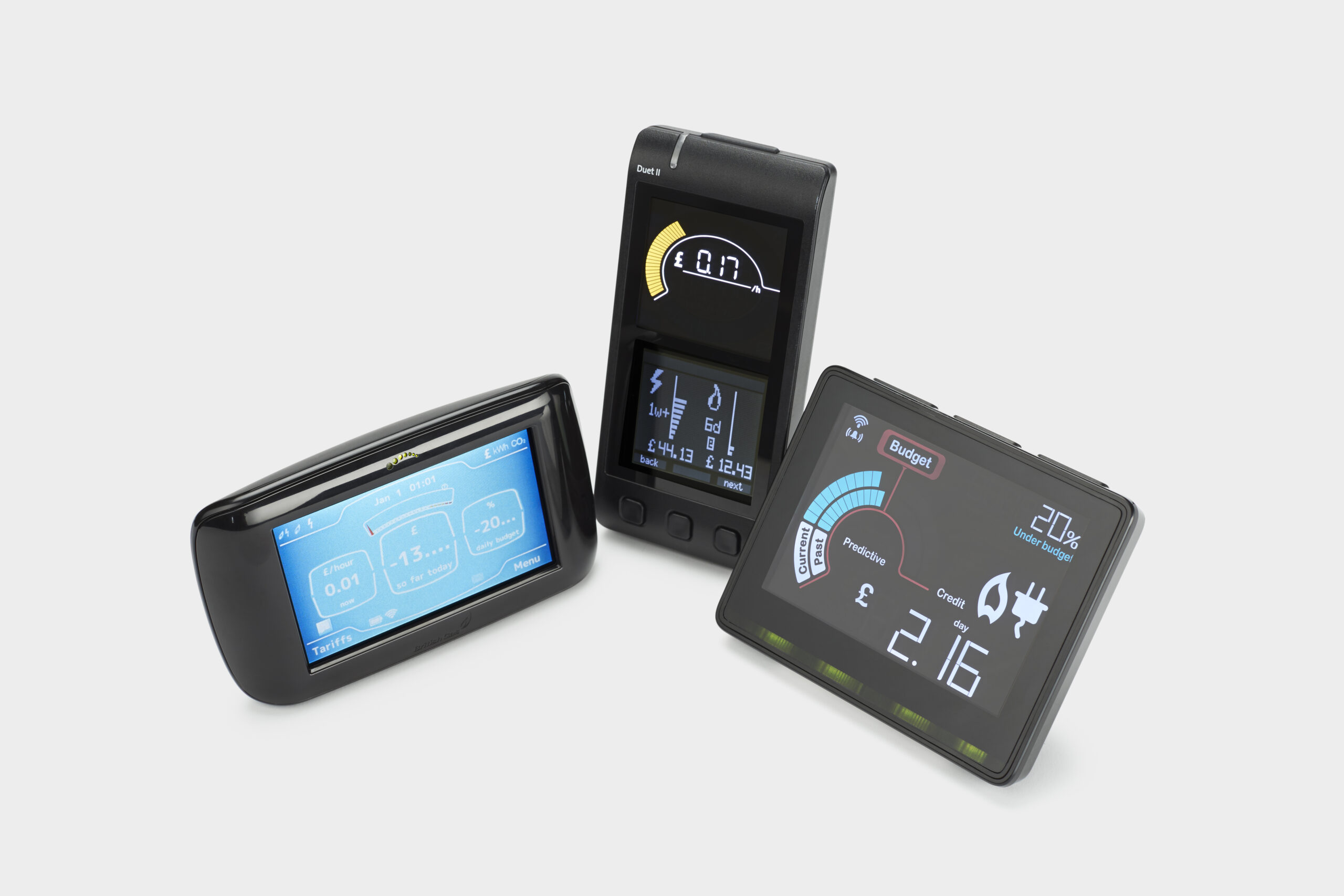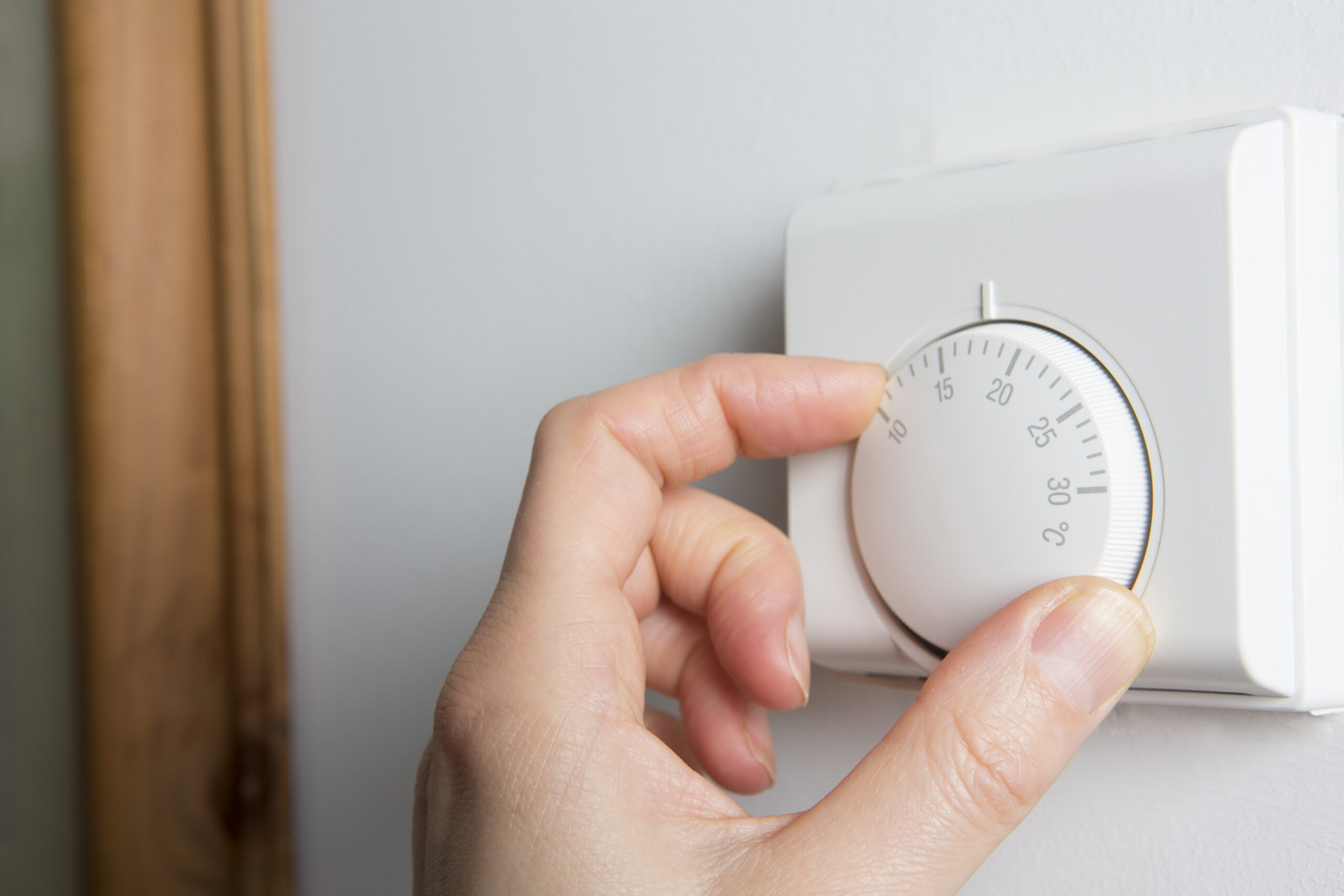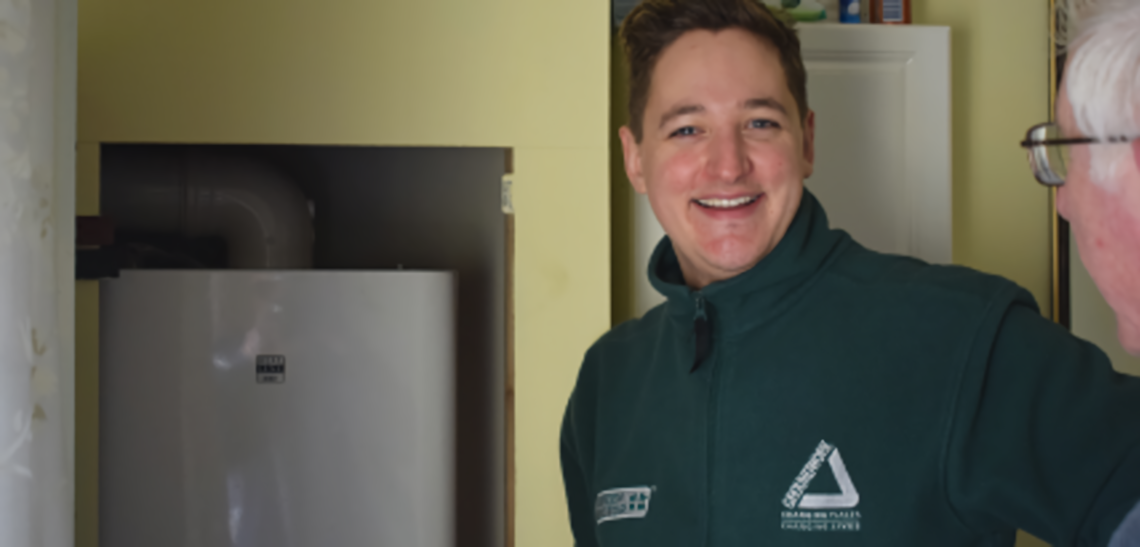Smart meters and in-home displays (IHDs)

What are they and how do they benefit me?
Smart meters are the new generation of gas and electricity meters, which replace the traditional energy meters in our homes. A smart meter sends automatic meter readings directly and securely to your energy supplier, resulting in accurate bills – putting an end to estimates and manual meter readings. The accompanying in-home display is a hand-held digital device, that sits in your home and enables you to see how much energy you’re using and what it’s costing you in pounds and pence, in near real-time. You’re probably already conscious of how much energy you’re using. Smart meters will make it easier for you to identify the areas where you’re using a lot of energy. There might be changes you want to make to reduce your usage and put a stop to any energy wastage.
Are smart meters good for the environment?
Smart meters will play a key role in the creation of a smart energy system that can better predict what electricity the country needs, when and where it needs it. This smart energy system will be better able to integrate more renewable energy sources and help reduce wastage. So by upgrading to a smart meter you’re helping to move Britain towards a cleaner, greener, lower-carbon economy. Good for you, good for the planet.
Can I get a smart meter for free?
There is no extra cost for a smart meter or for the in-home display. You won’t have an extra charge on your bill because you choose to get a smart meter. The costs are spread across everyone’s bills, just like the cost of running and maintaining today’s traditional meters are.
How do smart meters work?
Smart meters measure how much gas and electricity you use, just like a traditional meter, but they then securely share this reading directly with your energy supplier and your in-home display. Your in-home display will show you information in near real-time. Depending on how often you’ve agreed to share your meter reading with your supplier, your smart meter will either send half-hourly, daily or monthly meter readings. You can change your preference for how often you share this information at any point by getting in contact with your supplier directly. Your meter readings are sent to your supplier securely. Though it uses a wireless system, you don’t need the internet in your home for it to work, and it won’t use your internet if you do have it. If you choose, your energy supplier may also use this information to provide tailored energy efficiency advice and improve the service they provide for you.
How does the in-home display work?
During your smart meter installation, the installer will set your in-home display up for you and then show you exactly how it works. Your smart meter communicates with the in-home display to show you information about your energy use in near real-time. Position it somewhere visible, such as your kitchen or living room, so you can see how much you’re using and what it’s costing at a glance. If you have any problems understanding your in-home display, please contact your energy supplier for more information.
Will in-home displays work for people with impairments or disabilities?
All in-home displays are designed to show information in a way that’s easy to understand. However, an ‘accessible’ in-home display with additional features has been developed by industry in partnership with the Royal National Institute for the Blind and includes features such as large buttons and text-to-speech functionality. Depending on the severity of the condition, some people may find that the accessible in-home display better meets their needs. Consumers wishing to use an accessible in-home display should contact their energy supplier to find out more.
How will a smart meter help me save money?
Eighty per cent of smart meter owners say their smart meter gives them a better idea of what they’re spending on energy. Your in-home display makes it easier to identify areas where you can decrease costs.
Smart meters also mean accurate bills, so you can be confident that you’re only paying for what you’ve actually used.
How accurate are smart meters?
Smart meters are more accurate than traditional meters.
By law, all gas and electricity meters including smart meters have to be certified as accurate. If you do think there’s a fault, you can report it to your energy supplier in the same way you do for a traditional meter.
Could a smart meter impact my health?
No. Public Health England (PHE) sees no risk or danger to health from smart meters. The smart meters used in Britain have undergone one of the most rigorous safety testing regimes in the world and exceed every UK and EU safety standard.
How is my personal data kept safe when I have a smart meter?
Your smart meter holds information about how much gas and electricity you’ve used and what tariff you’ve chosen. It doesn’t store other personal information that could identify you, such as your name, address or bank account. Any data that is stored belongs to you. Only your supplier receives your smart meter readings and they cannot share any of this data without your permission. The data is transmitted safely, using a dedicated and secure wireless network.
Can I switch supplier with a smart meter?
Yes, you can always switch supplier whether you have a smart meter or a traditional meter. If you have a first generation smart meter you may find that once you switch, your meter may temporarily lose the ability to send meter readings automatically to your supplier, but your meter will still continue to accurately measure your use as before. This is just a temporary situation. A secure smart data network for smart meters has been set up. Once first generation meters are brought into this network they will become interoperable between suppliers and will once again deliver their full benefits.
Will I notice any difference if I have a first generation or second generation smart meter?
Consumers are unlikely to notice any differences between having a first generation smart meter and a second generation smart meter, unless you are switching suppliers. Those with a first generation smart meter may experience temporary issues with smart functionality when switching suppliers. Please see Question 11 for more information on switching.
Can I get a smart meter if my home has solar panels?
Yes you can get a smart meter if you have solar panels. Your bills reflect the energy you are using and that you have generated yourself. Your in-home display will only show how much energy you are buying from your supplier. In the future, your in-home display may also be able to reflect the energy you’re generating yourself, such as from solar panels.
Can I get a smart meter if I am on Economy 7 or 10?
If you have an Economy 7 or 10 tariff with your energy supplier, you will be able to get a smart meter as part of the national rollout. This type of meter is currently in development, so when you are able to get your smart meter will depend on whether your own energy supplier is ready to install one for you. We recommend that you register your interest for a smart meter with your supplier now, that way they can be in touch as soon as they become available.
Getting a smart meter

How do I get my smart meter?
Contact your energy supplier to find out when you can get a smart meter. We’re all entitled to a smart meter as part of the rollout. Some of us will have to wait longer than others to get our new meter, but you can ask your energy supplier directly to see if yours can be fitted now. How soon you can get your smart meter depends on your energy supplier, where you live, your current meter type and what kind of home you live in.
I rent my home. Can I still get a smart meter?
Yes, if you pay your electricity and/or gas bills and they’re addressed to you rather than your landlord you can get a smart meter. You don’t need your landlord’s permission to get a smart meter (although you should inform them). If you are not the bill payer, then you can ask your landlord to arrange a smart meter installation for you.
I have a prepay meter. Can I still get a smart meter?
Yes. Smart meters will make prepay as easy as pay-as-you-go on your mobile or tablet, and you can continue to top up your meter at a shop as well as being able to top up online, by phone and by text or via an app. Smart meters will be able to switch between payment modes (credit and prepay) and there will be no need for a physical meter change.
I’m moving home. Can I take my in-home display with me?
No, it won’t work. Your in-home display will only work with the smart meter that it is securely paired with. If you’re moving home, please leave your in-home display at the property so the new householder can benefit from it. If you move into a house that has a smart meter, but no in-home display, you should contact your energy supplier.
Preparing for your smart meter installation and what happens on the day

How do I prepare for installation?
Your energy supplier will:
- contact you and arrange a time and date that suits you
- tell you what to expect, how long it will take and if there’s anything special you need to do
You’ll need to:
- make sure you know where your current meter/meters are and take steps to ensure they’re accessible for the installer
- be at home to let the installer in and learn how to use your in-home display
- ensure any pets are kept out of the way
If it’s going to be a struggle to clear in front your meters, let your energy supplier know when you book the appointment.
What should I expect during my smart meter installation?
Smart meters can only be installed by your energy supplier, or by an authorised contractor on behalf of your energy supplier. Your appointment will always be pre-booked so you’ll know when you can expect your installer to arrive. When your installer arrives, they should present you with a valid identity card including the company name and phone number, as well as their name and photograph. The installation is very similar to a standard meter installation and is carried out by a fully trained installer. If you get both your gas and electricity from the same supplier, your installation will likely take about two hours to fit both smart meters during the same visit. While the meter is being replaced, your electricity and/or gas will need to be switched off for approximately 30 minutes each (i.e. 60 minutes if you’re having both meters replaced) – this is normal practice. Installers will remove the existing meter and replace it with the new smart meter usually in the same place as the old meter. If the new smart meter can’t be installed in that location and needs to be installed nearby, the installer will discuss this with you.Once your new meter is in place, the installer will show you how to use your in-home display, answer any questions you may have and offer energy efficiency advice. Written instructions on how to use the in-home display will also be left behind by the installer or sent by your energy supplier. The installer will also do a visual safety check of your gas appliances if you have a gas smart meter installed. Once they’re done, they’ll take away all your old meters.
Do I have to be at home during the installation?
Yes. Either you (or another responsible adult if you can’t be there) will have to be at home, even if your meters are located outside. This is so the installer can show you how the in-home display works. It is also to make sure that when they disconnect and reconnect the energy supply as part of the installation, it is done safely.
Do I need one smart meter for gas and another for electricity?
Yes, both meters will be replaced. If you’re a dual fuel customer, your supplier will aim to install both meters on the same visit to make things as easy as possible. You’ll only need one in-home display to view both your gas and electricity use. If your gas and electricity accounts are with different suppliers, you will have two separate smart meter installations (one from each of your suppliers).
Do the installers have a code of practice?
Yes. All the energy suppliers have signed up to the Smart Metering Installation Code of Practice (SMICoP). It is an industry-wide code of practice which governs installer behaviour and responsibilities during the installation process and is a legal requirement in their licence conditions.
Will the person who installs my smart meter be qualified?
Yes. There are strict rules for the installers who come and fit your smart meters. All installers are formally qualified and have to meet specific national standards, set out in SMICoP. Any engineers working with gas meters are gas safe registered.
Smart meter installation during the coronavirus pandemic
What safety measures are being put in place during the installation process?
All suppliers are taking appropriate safety measures during the smart meter installation process, for example keeping a safe distance from occupiers and wearing gloves. You should contact your energy supplier to learn more about the safety procedures they have put in place to ensure your safety, and the safety of the installer.
Will I have to let the installer into my property?
Yes, the installer will need to enter your property as they need to access your meters and set up the in-home display that comes with your smart meter. All energy suppliers are taking appropriate safety measures.
Does it matter if my meter is outside/inside – will the installation go forward?
It doesn’t matter where your meter is located, the engineer from your energy supplier will continue to follow the new social distancing safety processes in place to ensure your safety.
Should I let the installer use the toilet, offer them a cup of tea etc.?
While energy suppliers and the installers themselves are doing everything they can to keep customers safe, there will be instances where homeowners will have to use their own judgement based upon their own circumstances.
Will the installer show me how to use the smart meter? If so, how can they do that safely?
Your installer will provide appropriate information on how to use your in-home display. This may take place in writing, rather than as a verbal tutorial. In addition, many energy suppliers are offering an over-the-phone or online tutorial for how you can best use the new technology to manage your energy use.
